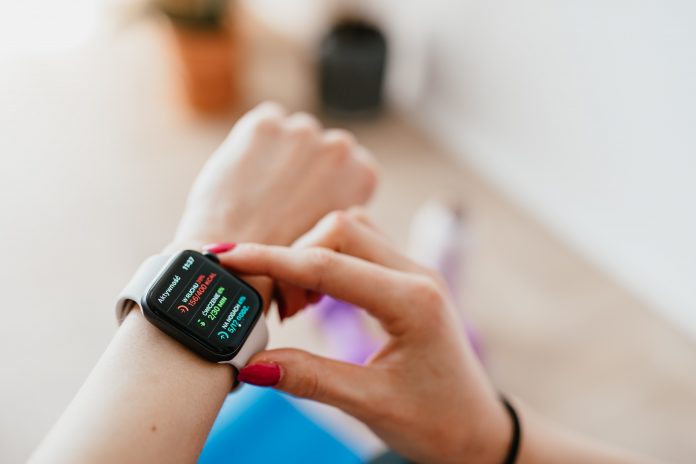Technological advancements are essential in today’s healthcare industry.
For example, patients can now book appointments online, access their ultrasounds via a secure portal, or get their blood work results from a protected gateway in cyberspace.
However, these trends in digital healthcare are just the beginning of health-tech integrations.
Imagine your physician monitoring your heart rate from a smartwatch. Remote healthcare monitoring could save lives.
The possibilities are endless in the “internet of things” world – the communication between devices that share data.
Despite needing improvements, digital healthcare could confer many benefits including
- reduced healthcare costs and errors,
- the opportunity for home care,
- enhanced disease management,
- and overall patient experience.1
Emerging applications of digital healthcare
The opportunities for smart healthcare are endless. But, as of today, there are a few emerging trends that are starting to enter mainstream society.
An example is smart hospitals.1 These hospitals include interconnected computerized systems, i.e., that can communicate with one another.2 These processes can make healthcare services more efficient, enhance the patient experience, and help manage hospital assets, such as disposable supplies.
Remote patient monitoring devices could also enhance the patient experience.1
These devices can allow physicians to interact and collect health data from the comfort of the patient’s home.
Investing in digital health could also enhance the ease of work for hospital staff. For example, asset tracking can help nurses locate wheelchairs within hospital settings more efficiently.1
Robotics and automation in healthcare could also make staff’s jobs less repetitive and more focused on patient care.1 For instance, artificial intelligence-guided ultrasounds could confirm that the images collected were appropriate or if they need to be re-taken, making appointments more efficient.3
A more invasive application of digital healthcare is smart implantable devices. These could include devices that capture data, dispense medications, or send electronic signals to cardiac tissue.4
Although integrating these trends may be beneficial, they have yet to be accepted by the medical community.
Can digital health contribute to value-based healthcare?
Hospital executives and healthcare staff prefer to focus on a value-based healthcare system of quality care over quantity.
The value-based model involves redefining the measurement of healthcare outcomes, benefits versus risks, and implementing processes that comply with regulations.5
The inclusion of digital healthcare is where technology pulls together the patient’s perspective with healthcare data and associated costs. This inclusion helps measure patients’ value from their healthcare experience while putting quality of care first.5,6 But, there are drawbacks to digital health.1
Privacy is an issue
A popular topic within the digital world is the value of personal data.
For example, phones can track what TV shows we watch or the online shops we like to look at and make advertising recommendations for us. Of course, this as an infringement of privacy is people are unaware.
With trends like the above, it is reasonable to question the collection and sharing of your health and well-being data.
Questionable data
A 2020 study published in JAMA Network Open interviewed 26 experts from different professional fields.7
The professionals were asked to indicate what data they considered relevant to health. However, the results showed no distinction between what information is healthcare-related or not.
Another example of an issue with digital healthcare was the use of emails and voicemails to detect changes in tone as a measure of mood change or change in physical health. There are many possibilities for why someone’s written or spoken tone changes.
As the study calls it, this digital health footprint can get quite personal. So there need to be better policies on what and how information is collected relating to the digital health footprint. And more enforcement of the laws designed to protect the public.
Do the benefits outweigh the risks?
Although any infringement of privacy can be scary, is it worth it for good health?
Remote physician monitoring would save a lot of time. In addition, the mental load on physicians and healthcare staff could be lightened with technological advancements. Digital healthcare can reduce repetitive tasks and enhance efficiency.
But, more research needs to be done into digital healthcare to make it safe.
References
- Satyanarayana, VV, I. Kullayamma, G.V. Pradeep Kumar, & M. Venkatanaresh. (2021). Significance of internet of things (IoT) in health care with trending smart application. smart systems in computing. Smart Innovation, Systems and Technologies, vol. 235. Springer, Singapore. https://doi.org/10.1007/978-981-16-2877-1_22.
- Kwon, H., S. An, H. Lee, W.C. Cha, S. Kim, M. Cho, & H. Kong. (2022). Review of smart hospital services in real healthcare environments. Healthcare Informatics Research; 28(1): 3-15. DOI: 10.4258/hir.2022.28.1.3.
- Drukker, L., J.A. Noble, & A.T. Papageorghiou. (2020). Introduction to artificial intelligence in ultrasound imaging in obstetrics and gynecology. Ultrasound in Obstetrics & Gynecology; 56(4): 498-505. doi: 10.1002/uog.22122.
- Haddow, G., S.H. Harmon, L. Gilman. (2015). Implantable smart technologies (IST): Defining the ‘sting’ in data and device. Health Care Analysis; 24: 210-227. DOI: 10.1007/s10728-015-0309-8.
- Nuno-Solinis, R., E. Urizar, M. Merino, J. Del Barrio, and M.E. Rodriguez. (2022). Validation study of a value-based digital health questionnaire. International Journal of Environmental Research and Public Health; 19(12): 7034. https://doi.org/10.3390/ijerph19127034.
- Porter, M.E. & T.H. Lee. (2013). The strategy that will fix health care. Harvard Business Review. Accessed on Oct. 23, 2022. Retrieved from https://hbr.org/2013/10/the-strategy-that-will-fix-health-care.
- Grande, D., X.L. Marti, R. Feuerstein-Simon, R.M. Merchant, D.A. Asch, A. Lewson, & C.C. Cannuscio. (2020). Health policy and privacy challenges associated with digital technology. JAMA Network Open; 3(7): e208285. DOI: 10.1001/jamanetworkopen.2020.8285.



